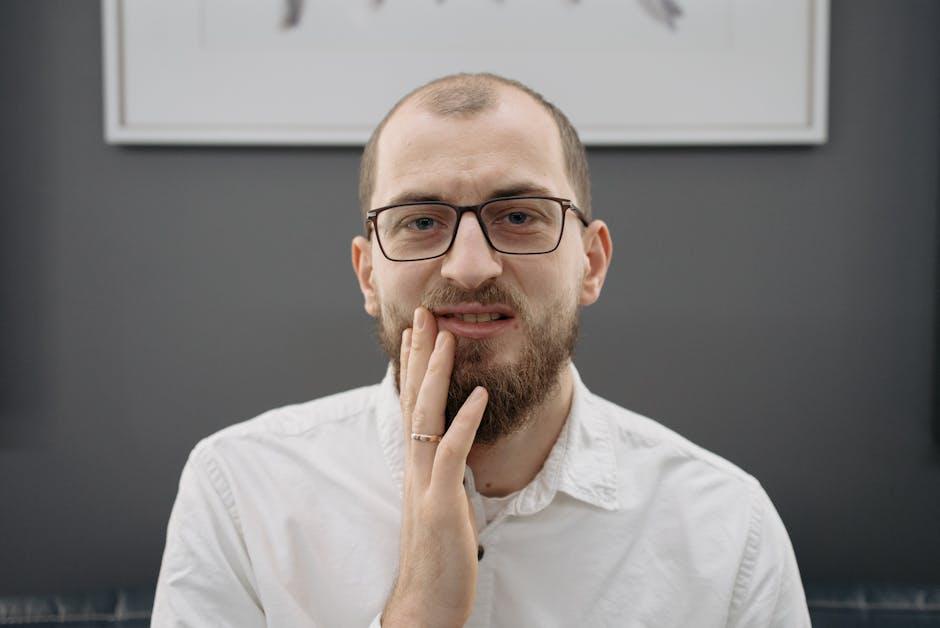
More Dental Problems as You Get Older? Aging May Not Be the Real Reason – San Francisco Chronicle
If you’ve noticed more dental problems cropping up as the years pass, you might be quick to attribute them to aging. While it’s true that many older adults face more dental issues, recent research and dental experts suggest that age itself isn’t the main culprit. Instead, lifestyle choices, oral hygiene habits, and medical conditions play a more significant role in declining oral health. Let’s dive into why dental problems increase with age and how you can break the myth that aging automatically means losing teeth or suffering from cavities.
Understanding the Myth: Does Aging Cause Dental Problems?
“Getting older naturally means worse teeth” is a common misconception. While aging is correlated with higher instances of dental issues, it’s usually the result of cumulative effects over time rather than the aging process itself. Let’s look closer at what really contributes to dental problems as we grow older.
Common Dental Issues Seen More Often in Older Adults
- Periodontal (Gum) Disease: Often caused by plaque buildup, it becomes more common due to years of oral hygiene negligence.
- Tooth Decay: Older adults may experience more cavities especially near the roots as gums recede.
- Dry Mouth (Xerostomia): Medications and health problems reduce saliva flow, increasing tooth decay risk.
- Tooth Sensitivity and Wear: Years of use, teeth grinding, and enamel erosion contribute to sensitivity and damage.
- Tooth Loss: Resulting mainly from untreated gum disease or decay, not simply age.
What Really Causes More Dental Problems in Older Adults?
Dental problems often blamed on aging are, more accurately, influenced by these key factors:
| Factor | Explanation | Impact on Oral Health |
|---|---|---|
| Poor Oral Hygiene | Inconsistent brushing and flossing | Leads to plaque buildup, gum disease, and cavities |
| Medication Side Effects | Many prescription drugs cause dry mouth | Reduces natural protection from saliva, increasing decay |
| Chronic Medical Conditions | Diabetes, arthritis, and more | Reduced healing, higher infection risk, difficulty maintaining hygiene |
| Diet and Lifestyle | High sugar intake, smoking, alcohol consumption | Promotes decay, gum problems, and oral cancers |
| Limited Access to Dental Care | Financial or mobility constraints | Delayed treatment worsens dental conditions |
The Role of Medical Conditions and Medications
Aging often comes with more chronic health conditions requiring daily medication. Many drugs cause dry mouth, one of the most common contributors to dental issues in older adults. Without sufficient saliva to neutralize acids and wash away food particles, teeth become vulnerable to decay and gum disease.
Lifestyle Habits Accumulating Over Time
Long-term habits like smoking or a high-sugar diet may not cause immediate damage but can result in severe dental problems over decades. Combined with possibly less frequent dental visits as people age, these habits increase the likelihood of needing extensive dental treatment later in life.
Expert Tips for Maintaining Healthy Teeth as You Age
Regardless of your age, excellent oral health is achievable! Experts at San Francisco dental clinics recommend focusing on these practical tips:
- Brush Twice Daily: Use fluoride toothpaste and a soft-bristle brush to protect enamel and gums.
- Floss Regularly: Remove plaque and food debris from between teeth daily.
- Stay Hydrated: Drinking plenty of water helps combat dry mouth and flush oral bacteria.
- Manage Medical Conditions: Keep chronic illnesses controlled and inform your dentist about all medications.
- Visit Your Dentist: Schedule check-ups and cleanings at least twice a year or as advised.
- Quit Smoking: Smoking cessation improves gum health and overall oral environment.
- Eat a Balanced Diet: Limit sugary snacks and drinks, and incorporate teeth-friendly nutrients like calcium and vitamin D.
Case Study: Oral Health Transformation in Seniors
Meet Martha, a 68-year-old San Francisco resident, who suffered from frequent cavities and gum inflammation since her 50s. Initially, she believed “it’s just aging,” and didn’t prioritize dental care. After a comprehensive dental evaluation and personalized care plan emphasizing hygiene, diet change, and quitting smoking, Martha’s gum health improved dramatically and cavity occurrences decreased.
Her story illustrates how intentional care can reverse the trajectory of dental decline, proving aging alone doesn’t determine your oral health fate.
Benefits of Challenging the Aging-Dental Decline Myth
- Improved Motivation: Understanding the true causes encourages proactive care and visits to the dentist.
- Enhanced Quality of Life: Healthy teeth improve eating, speaking, and social confidence at any age.
- Reduced Healthcare Costs: Preventative care avoids expensive restorative treatments from serious dental diseases.
Conclusion: Age Isn’t an Enemy of Your Smile
While dental problems often rise in frequency among older adults, aging itself is rarely the root cause. Instead, decades of lifestyle choices, medical factors, and oral hygiene habits shape your oral health outcomes. By understanding this distinction, seniors can reclaim their smiles with informed care, regular dental visits, and positive lifestyle changes.
Don’t accept dental decline as an inevitable part of getting older. Instead, embrace the power you hold in maintaining a healthy mouth well into your golden years. After all, your smile is timeless.


